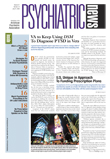New Year's Day 2003 stands out sharply in the memory of Robert Forman, Ph.D., a clinical scientist affiliated with the University of Pennsylvania's Center for Studies of Addiction and Treatment Research Institute.
Forman learned that an acquaintance was addicted to opioid medications and obtaining them via the Internet. Forman started perusing the Internet for Web sites offering to sell such medications without a prescription. “I was amazed by what I found,” he told Psychiatric News.
He was so dumbfounded by the plethora of such sites that he had located that he and some colleagues decided to launch an explorative study to get a better idea of their prevalence and content.
Between March 3, 2003, and September 7, 2004, they conducted 47 Internet searches for such sites. The searches were intended to replicate what Internet users would undertake if they conducted the searches themselves using terms such as, “codeine,” “Vicodin,”“ OxyContin,” “no prescription codeine,” “no prescription Vicodin,” and “no prescription OxyContin.” Each search was limited to the first 100 sites listed because any Internet search usually presents the results that are most relevant to the search term first.
The searches yielded 302 Web sites offering to sell opioid medications without a prescription, the team reported in the July American Journal of Psychiatry. The harvest of such Web sites was especially rich when they prefaced their searches with the words “no prescription.” Although both Google and Yahoo provided access to such Web sites, Yahoo generated significantly more sites than Google did.
“The whole phenomenon was absolutely jaw-dropping at first—and still is,” Forman said.
George Woody, M.D., a professor of psychiatry at the University of Pennsylvania and one of the study investigators, told Psychiatric News that he was both surprised and troubled “by the breadth and depth of offers to sell prescription opioid medications on the Web without any meaningful medical evaluation showing that the person requesting the medication had a problem that required it.”
How much Internet users, especially young people, are tapping these Web sites for opioid medications is not known, the study investigators stated in their study report. However, three national drug-use monitoring studies have cited marked increases in prescription opioid use, especially by youth, during the past five years. These increases could well be due to young people's easy access to opioid medications via the Internet, suspected the researchers.
And that leads to the question: Why are such Web sites allowed to exist? One reason, the researchers explained in their study report, is because many are located in countries that do not require prescriptions for opioid medications or do not enforce prescription regulations that are in effect in the United States. For example, of the 302 Web sites that were found to be selling opioid medications without a prescription, 189 (65 percent) were registered in 44 countries outside the United States. That leaves, of course, the remaining 113 (35 percent) that were registered in the United States. The U.S. Drug Enforcement Administration is taking action against some of these sites, Forman said, but unfortunately many still abound.
Indeed, during their searches for Web sites selling opioid medications without a prescription, the researchers came across Web sites selling numerous other controlled substances as well. These included sedatives, stimulants, steroids, marijuana, opium poppies, coca leaves, nitrous oxide, psilocybin, and peyote. Only cocaine, ecstasy, heroin, and LSD seemed to be missing.
All things considered, Wood advised, psychiatrists “should be aware of the possibility that their patients may be purchasing opioid medications [or other controlled substances] on the Web and should ask them about it, especially if their patients are suspected or shown to have a substance use disorder.”
The study was funded by the National Institute on Drug Abuse Clinical Trials Network.
